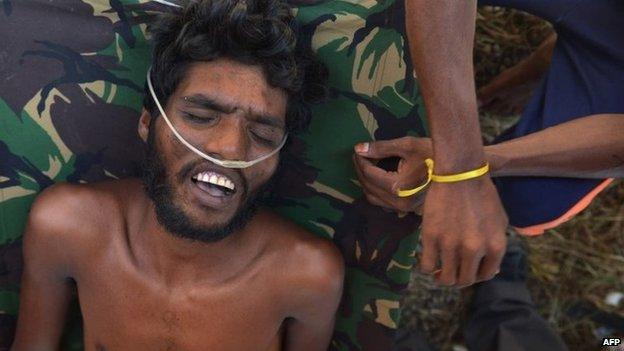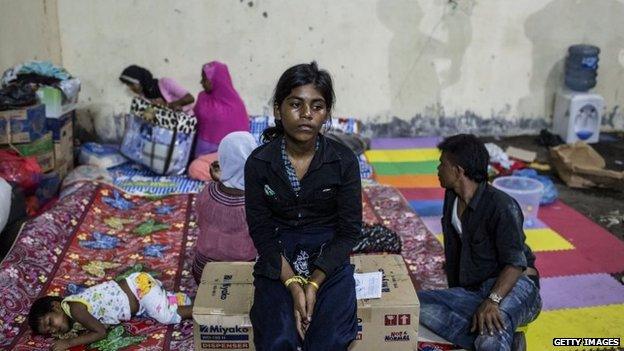Hardline stance on new 'boat people'
- Published

Many of the migrants have needed medical attention after the arduous journey
It is hard to imagine a more hard-hearted stance towards the migrant boats than that taken by governments in south-east Asia.
Malaysia has blockaded its north-western sea border to stop them entering. Thailand has hurriedly repaired boat engines and shooed them over its border, despite near starvation and illness on board.
Now fishermen in Indonesia say they have been ordered not to pick anyone up at sea.
Why? They certainly fear a deluge of migrants if they open the floodgates. Malaysia is already hosting tens of thousands of Rohingya Muslims and says it can't take any more.
Thailand is home to millions of illegal immigrants from neighbouring countries. They have a collective memory of the 800,000 boat people who fled Vietnam in the late 1970s, and stayed in camps in south-east Asian countries for nearly two decades.

Why has this crisis erupted?

Rohingya Muslims mainly live in Myanmar - largely in Rakhine state - where they are not considered citizens and have faced decades of persecution.
Rights groups say migrants feel they have "no choice" but to leave, paying people smugglers to help them. The UN estimates more than 120,000 Rohingyas have fled in the past three years.
Traffickers usually take the migrants by sea to Thailand then overland to Malaysia, often holding them hostage until their relatives pay ransoms.
But Thailand recently began cracking down on the migrant routes, meaning traffickers are using sea routes instead, often abandoning their passengers en route.

Myanmar's neighbours blame it for causing this crisis through its terrible treatment of Rohingyas. Myanmar - also known as Burma - refuses to accept responsibility. Suddenly all the talk of effective dialogue among member states of Asean looks hollow.
But arguing over who is responsible for these migrants should not be the issue right now. Saving lives should be.

Rohingyas have found themselves unwanted in all the countries of the region
The dire condition of many on board the boats, and horrific stories of deaths in fights over food, should make that clear. And it is worth remembering that the number of people making this perilous journey - thought to be 25,000 this year - is high because the trafficking business is so incredibly profitable.
Had Thailand and Malaysia done more to shut down the business before now, far fewer would be trying to reach their shores.